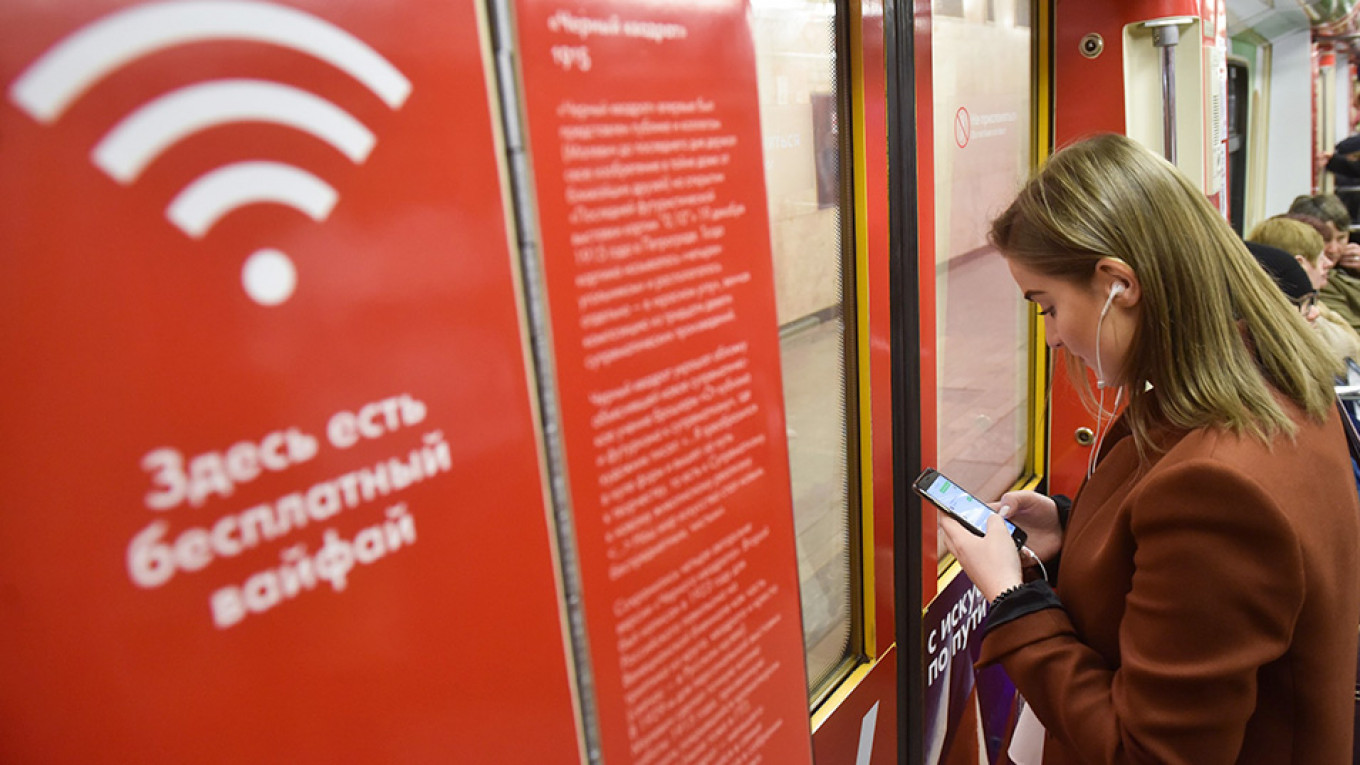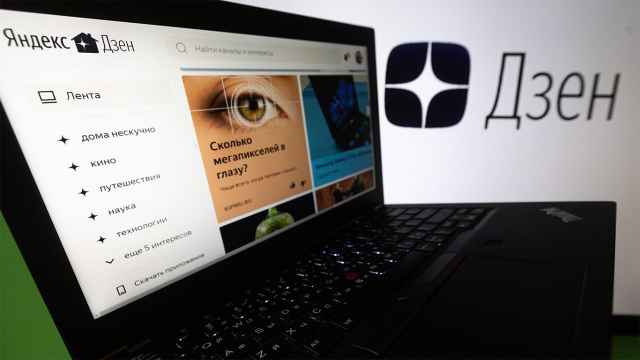Russia risks falling behind the rest of the world in next-generation 5G technology after President Vladimir Putin has reserved its most popular frequency range for the military and intelligence services, Russia’s Vedomosti business daily reported Thursday.
With speeds at least 10 times faster than 4G technology, 5G is expected to power internet-connected products ranging from self-driving cars and smart cities to augmented reality and artificial intelligence. The 3.4-3.8GHz range is widely popular for 5G technology, with only China and Japan using 4.4-4.99GHz, a frequency with limited equipment availability.
Putin has sided with the Security Council in its position against allocating the 3.4GHz-3.8GHZ frequency range to mobile operators for the development of 5G, Vedomosti reported, citing sources including a government official, a telecom employee and a source familiar with Russia’s 5G deliberations.
The 3.4GHz-3.8GHz frequencies are reportedly reserved for military, intelligence and security use. Russia’s Communications Ministry has proposed allocating the 4.4GHz-4.99GHz frequency range for 5G, the Kommersant business daily reported this week.
The Kremlin later on Thursday declined to comment on what it said was “official correspondence.”
“This is fake news,” an unnamed source from one of Russia’s top four telecom providers told the state-run TASS news agency after the Vedomosti report was published.
“This is Putin’s reaction in spring to the Security Council’s April letter. Things have changed dramatically in favor of 3.4GHz-3.8GHz since then. Operators and the Communications Ministry are currently rewriting the 5G development concept with a view toward 3.4-3.8GHz,” the source said.
The Swedish telecom equipment supplier Ericsson announced last week that it launched Russia’s first 5G zone in central Moscow with the country’s fourth-largest operator Tele2. Putin’s digital economy project aims to deploy 5G across major Russian cities by 2022.
A Message from The Moscow Times:
Dear readers,
We are facing unprecedented challenges. Russia's Prosecutor General's Office has designated The Moscow Times as an "undesirable" organization, criminalizing our work and putting our staff at risk of prosecution. This follows our earlier unjust labeling as a "foreign agent."
These actions are direct attempts to silence independent journalism in Russia. The authorities claim our work "discredits the decisions of the Russian leadership." We see things differently: we strive to provide accurate, unbiased reporting on Russia.
We, the journalists of The Moscow Times, refuse to be silenced. But to continue our work, we need your help.
Your support, no matter how small, makes a world of difference. If you can, please support us monthly starting from just $2. It's quick to set up, and every contribution makes a significant impact.
By supporting The Moscow Times, you're defending open, independent journalism in the face of repression. Thank you for standing with us.
Remind me later.






